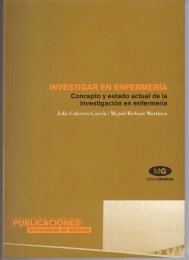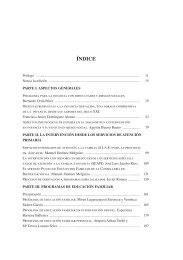Technical Writing - e-BUC
Technical Writing - e-BUC
Technical Writing - e-BUC
- No tags were found...
Create successful ePaper yourself
Turn your PDF publications into a flip-book with our unique Google optimized e-Paper software.
1.1 Why is it important to study technical and professional communication?In a world of rushing and pressure to save time, writing documents seems slow and timeconsuming.Why write a letter or a memo if you can make a quick phone call? Why spendtime thinking about how to put into words information that can be transmitted spontaneouslywithout the extra effort of heeding syntax and punctuation? This logical reasoning fails,though, when we come to consider the type of documents technical writers need to developas well as the audience they are addressed to. On many occasions, communication is not justfrom one emitter to one receiver but rather from one to many, as is the case of memosaddressed to company staff, or a report meant to be read by more than one person, forexample. In addition, most documents generated in the technical field include informationthat cannot be easily transmitted unless it is orderly displayed on a document. In other words,oral communication may fall short when we need to transmit the information technicaldocuments require. Hence, writing skills can be considered an important factor in thetechnical and scientific field because:1. In many different types of work, writing constitutes an important part of the everydayworkload. In a company, people write to inform about a project or activity (progress reports),to help managers in decision-making (recommendation reports), to communicate within theorganization (memos), to ask questions (inquiry letters) and to contact colleagues,distributors, and mates in the same workplace (email messages). These various tasks revealthat writing is a key activity for many technical professionals.2. They facilitate communication with co-workers, clients and supervisors, that is, inside andoutside the workplace. Engineers and scientists’ writing skills must be of a high standard inorder to effectively communicate with the people with whom they work. It is not enough forthem to be technically good, they must be skilful in communicating what they are doing andwhy it is important. As a last resort, their technical and professional value will very muchdepend on their capacity to convince others of the importance of their work.3. They are necessary for a successful career. Organizations know the advantages of a wellwrittendocument since the way they construct their documents reflects their image. Poorlywritten documents will reveal not only writers’ inefficiency but also organizations’ lack ofseriousness. Thus, engineers who can communicate their thoughts clearly and efficiently arebound to be promoted to more challenging positions. Additionally, being good at writtencommunication skills (in whatever language) is likely to act as an added value that enhancesyour curriculum vitae and helps you stand out from other applicants in a job selectionprocess.4. <strong>Writing</strong> skills contribute to saving time and money. Good technical writing saves timeand, therefore, money. If you create a document, a report, for example, for your superior,which is clear and easy to understand, no time will be wasted on pondering the meaning. In© The Authors, 2007. © Edicions UPC, 2007
















